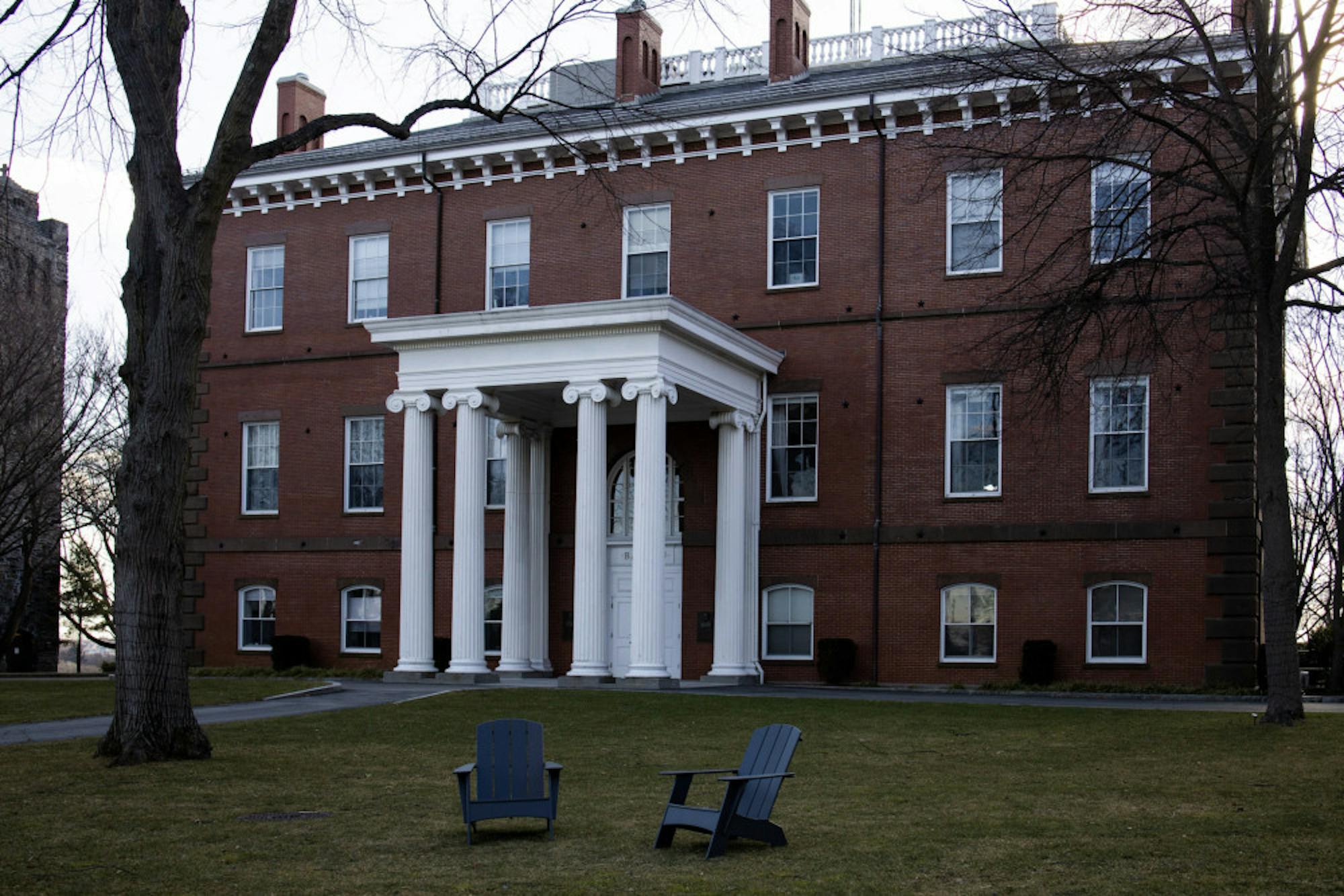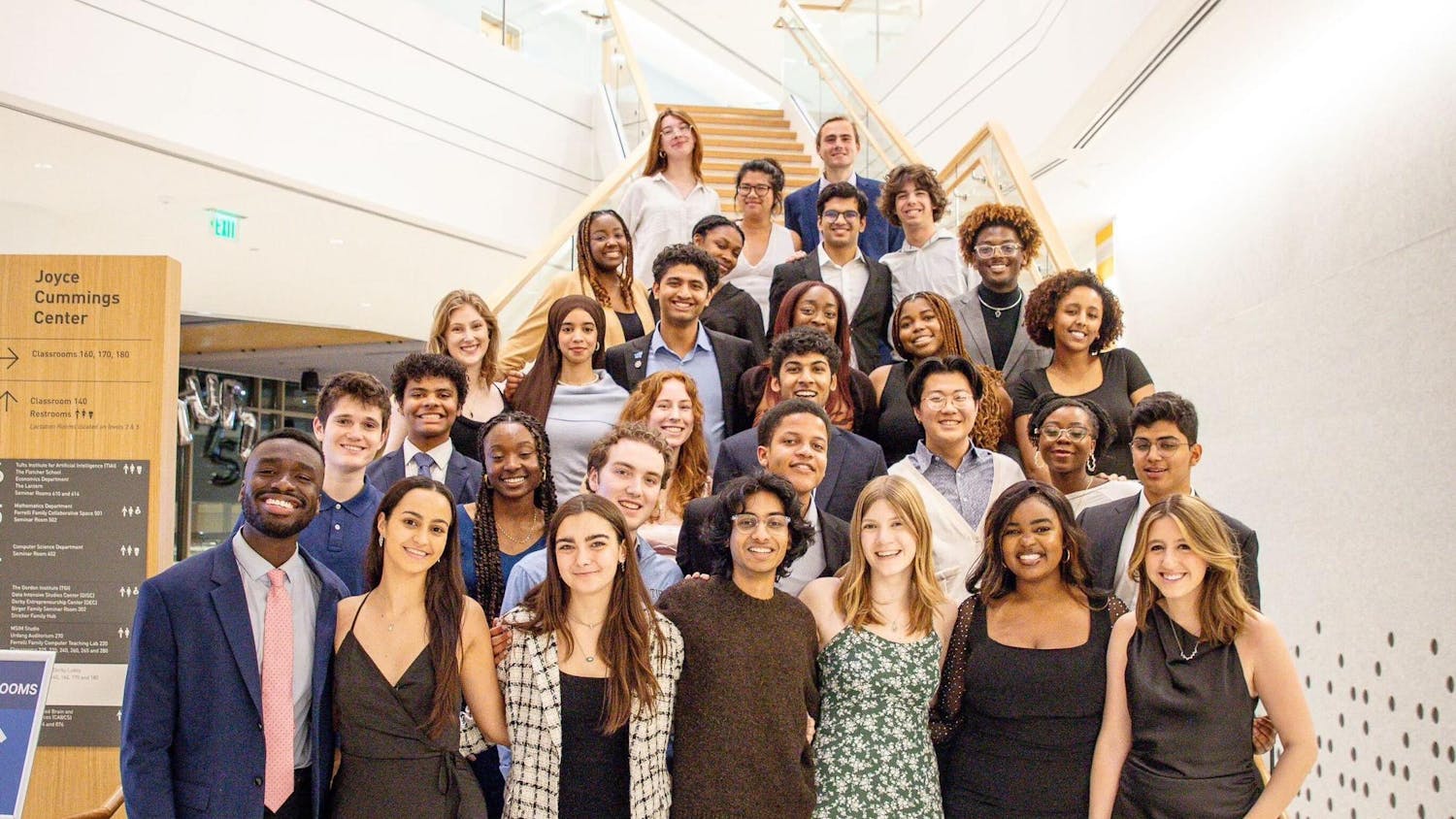Members of the Tufts Action Group, a collective of faculty, staff and students committed to grassroots anti-racism efforts within the university, met in April to discuss and respond to the five recently published anti-racism workstream reports. TAG’s response acknowledged the progress made by the “Tufts as an Anti-Racist Institution” effort and called for increased transparency, accountability and community presence in its implementation.
“We carry out this audit and share this feedback with a view to contributing grassroots insight, and to the restorative justice principle of lifting up voices and perspectives from communities most harmed by the structures of racism at Tufts,” the group’s statement said.
Associate Professor of History and Chair of the Department of Studies in Race, Colonialism, and Diaspora Kris Manjapra, who is a member of TAG’s steering committee, said that the group formed last summer in response to police brutality and the killing of Black people around the country. The group has about 100 members.
“Approximately 35 [members] gathered via Zoom for meetings in April, in which we reviewed, together, the workstream … with a view [of] both wanting to recognize progress made as well as to look at where progress still needs to be made,” he said.
Manjapra said that the university’s first major breakthrough was creating the space within the institution to have these conversations. TAG also commended the commitment of $25 million in investments over five years toward these anti-racism efforts.
TAG’s response included a list of concerns and demands for the university as it moves forward in implementing the workstream recommendations.
“The key themes of the room for improvement are the need for accountability, the need for transparency, the need for coordination, the need for more equitable consultation with community members, especially targeted and harmed community members around issues of equity and the need for Tufts students, staff, faculty who are amongst the underrepresented, marginalized and targeted groups to be included at the decision-making table for how these anti-racist institution endeavors are going to unfold,” Manjapra said.
Erin Seaton, senior lecturer in the department of education and a member of TAG, agreed that there should have been more community input in developing the recommendations.
“Tufts had Accenture, which is a problematic company, come in and do some of the initial investigative work in thinking about what it would need to become an anti-racist university when there was already this grassroots work happening on campus, so the audit felt like in some ways it ought to have come from the community rather than an outside company,” she said.
Manjapra added that restorative justice is essential to the success of this work.
“Restorative justice insists that when remedy work is being done, remedy for inequities, remedy for injustice, the communities that have been harmed, must be consulted in the process,” Manjapra said. “There's even a stronger formulation, which is affected communities should own the process of remedy.”
Mala Ghosh, associate dean of Tufts Global Education and a member of TAG, said that the anti-racism efforts must also be addressed through a global lens because racism is not only a domestic issue.
“From the reports and group sessions it was not evident that there was an exploration of the experiences and needs of international students, scholars, faculty, and staff here in the U.S.,” Ghosh wrote in an email to the Daily. “I think it is also vital to look at the experiences of community members who study, work, teach, or conduct research abroad.”
She expanded further on her concerns in this area.
"Oftentimes we think of Tufts as being only in the US and anti-racism discussions are often from a US domestic point of view," Ghosh said.
One of TAG’s demands is the establishment of a staff senate to ensure that staff members are represented in university governance, like faculty are with the Faculty Senate.
“Staff play a critical role in the University and should have a voice beyond their own department and supervisor,” Ghosh said. “We talk about recruiting a diverse staff, but we need to also focus on retention. In my opinion, a staff senate would create a stronger and more inclusive community across divisions and schools.”
Seaton said that a holistic curriculum review, another of TAG’s demands, is fundamental for working towards being an anti-racist institution. This includes rethinking AP credits and grading for the first two years of undergraduate education.
“I think we have to radically rethink the whole way in which students come into the university,” she said. “For example, one of the things I think about a lot are AP courses. Who takes AP courses, who brings those credits to the university and then how do those create a two-tiered system, in which primarily white, privileged students come into Tufts already ahead of their peers?”
Ghosh added that educational workshops must be customized to meet the varying needs in the community.
“I am also concerned that people who are from historically marginalized communities are often further traumatized in various ways in these trainings or workshops,” she said. “We are often put on the spot because we are one of the few in the room that has experienced the type of discrimination being addressed.”
Manjapra said that, as a historian, he views change as a dialectic. Moving forward, he hopes to see more community-led change at Tufts.
“When we look at how institutions change, there are two models,” he said. “One model is top-down change, and that tends to replicate the existing structures and maintain the established interests. Another model is community-led change, and it’s community-led change that we have not had enough of at Tufts University, which is why we don't see structures change.”
Despite this, Manjapra said he is confident in university leadership’s commitment to making these structural changes.
“I think, whenever an institution needs to make giant steps, not small steps, it always comes down to visionary leadership,” Manjapra said. “I think we are in a very good place, given that President Monaco is a big thinker and has a track record of making big steps at Tufts.”
Seaton said that, for her, TAG’s work is about giving students the knowledge and agency to confront and dismantle systems of oppression.
“If we think about Tufts as a leader in the world, I can't think of something better to give students than the ability to have tools to dismantle oppression, and to be thinking about this in terms of their own identities, and the communities and workplaces that they are going out beyond,” Seaton said.
Manjapra emphasized each member of TAG’s role in the Tufts community and desire to be represented at an institutional level.
“A really important insight that's coming out of the TAG work is the importance of feeling represented in your home,” he said. “That's the difference between inclusion and equity ... equity is about feeling that you belong in a place because you're represented in structures.”






